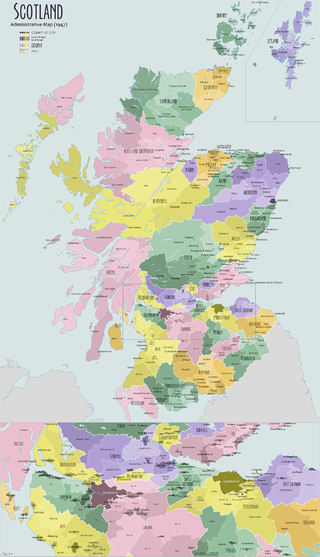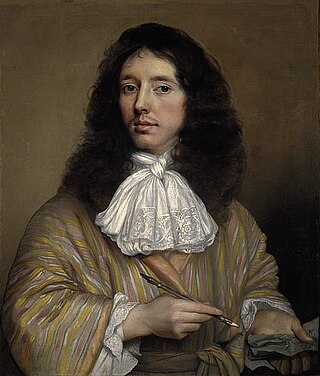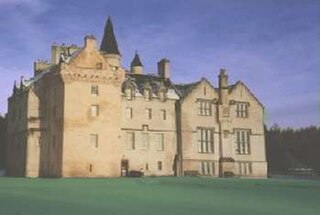
The politics of Scotland operate within the constitution of the United Kingdom, of which Scotland is a country. Scotland is a democracy, being represented in both the Scottish Parliament and the Parliament of the United Kingdom since the Scotland Act 1998. Most executive power is exercised by the Scottish Government, led by the first minister of Scotland, the head of government in a multi-party system. The judiciary of Scotland, dealing with Scots law, is independent of the legislature and the Scottish Government, and is headed by the Lord Advocate who is the principal legal adviser to the Scottish Government. Scots law is primarily determined by the Scottish Parliament. The Scottish Government shares limited executive powers, notably over reserved matters, with the Scotland Office, a British government department led by the Secretary of State for Scotland.

The Shires of Scotland, or Counties of Scotland, were historic subdivisions of Scotland.
The history of the British peerage, a system of nobility found in the United Kingdom, stretches over the last thousand years. The current form of the British peerage has been a process of development. While the ranks of baron and earl predate the British peerage itself, the ranks of duke and marquess were introduced to England in the 14th century. The rank of viscount came later, in the mid-15th century. Peers were summoned to Parliament, forming the House of Lords.

Andrew Fletcher of Saltoun was a Scottish writer and politician, remembered as an advocate for the non-incorporation of Scotland, and an opponent of the 1707 Act of Union between Scotland and England. Fletcher became an exile in 1683 after being accused of promoting insurrection. He was appointed the cavalry commander of the Monmouth Rebellion, but shortly after landing in England, he killed another leading figure. He again went into exile, this time as a fugitive and with his estates forfeit. He returned with William of Orange, becoming Commissioner of the old Parliament of Scotland.

The Education Act 1496 was an act of the Parliament of Scotland that required landowners to send their eldest sons to school to study Latin, arts and law. This made schooling compulsory for the first time in the world.
Peeblesshire was a Scottish county constituency of Great Britain and after 1801 the House of Commons of the Parliament of the United Kingdom (Westminster) from 1708 until 1868. It elected one Member of Parliament (MP) by the first past the post voting system.
Knight of the shire was the formal title for a member of parliament (MP) representing a county constituency in the British House of Commons, from its origins in the medieval Parliament of England until the Redistribution of Seats Act 1885 ended the practice of each county forming a single constituency. The corresponding titles for other MPs were burgess in a borough constituency and baron for a Cinque Ports constituency. Knights of the shire had more prestige than burgesses, and sitting burgesses often stood for election for the shire in the hope of increasing their standing in Parliament.

Laird is a designation that applies to an owner of a large, long-established Scottish estate. In the traditional Scottish order of precedence, a laird ranked below a baron and above a gentleman. This rank was held only by those holding official recognition in a territorial designation by the Lord Lyon King of Arms. They are usually styled [name] [surname] of [lairdship]. However, since "laird" is a courtesy title, it has no formal status in law.
The Scottish representatives to the first Parliament of Great Britain, serving from 1 May 1707 to 26 May 1708, were not elected like their colleagues from England and Wales, but rather hand-picked.

Colonel The Honourable John Edmund Erskine, of Cardross, was a Scottish soldier and politician. His journal was printed in the nineteenth century. He was nicknamed 'The Black Colonel'.
Sir Patrick Houstoun of that Ilk, 1st Baronet was a Scottish politician who served as a shire commissioner of the Parliament of Scotland for Renfrewshire in 1661 and Dunbartonshire in 1681–1682 and of the Convention of the Estates of Scotland for Dunbartonshire in 1678. He was knighted and then created a Baronet of Nova Scotia on 29 February 1668.

The Tender of Union was a declaration of the Parliament of England during the Interregnum following the War of the Three Kingdoms stating that Scotland would cease to have an independent parliament and would join England in its emerging Commonwealth republic.

A commissioner was a legislator appointed or elected to represent a royal burgh or shire in the Parliament of Scotland and the associated Convention of the Estates. Member of Parliament (MP) and Deputy are equivalent terms in other countries.
William Sutherland of Roscommon, also known as William Sutherland of Mostowie, was a Member of the Parliament of Scotland from 1703 to 1706 and Provost of Elgin from 1705 to 1708. He was son of James Sutherland, 2nd Lord Duffus and married Helen Duff, the eldest daughter of William Duff of Dipple, in 1702. Sutherland owned the estates of Moostowie, Aldroughty and Quarrelwood. In 1715, his estates were forfeited for his involvement in the 1715 Jacobite uprising and he died abroad in 1716, without issue.
Before the Acts of Union 1707, the barons of the shire of Kinross elected commissioners to represent them in the unicameral Parliament of Scotland and in the Convention of the Estates.
George Brodie of Ailisk was a Scottish politician.

James Brodie, 18th of Brodie, was a Scottish clan chief and politician who sat in the House of Commons in 1720.
James Brodie was a Scottish politician.

An Act for the division of Meath into two shires was an act of the Parliament of Ireland passed in 1542 which resulted in the division of County Meath, shired in 1297, into the counties of Meath and Westmeath. The Act commenced on Saint Catherine's Day in 1542 and remains in effect.










